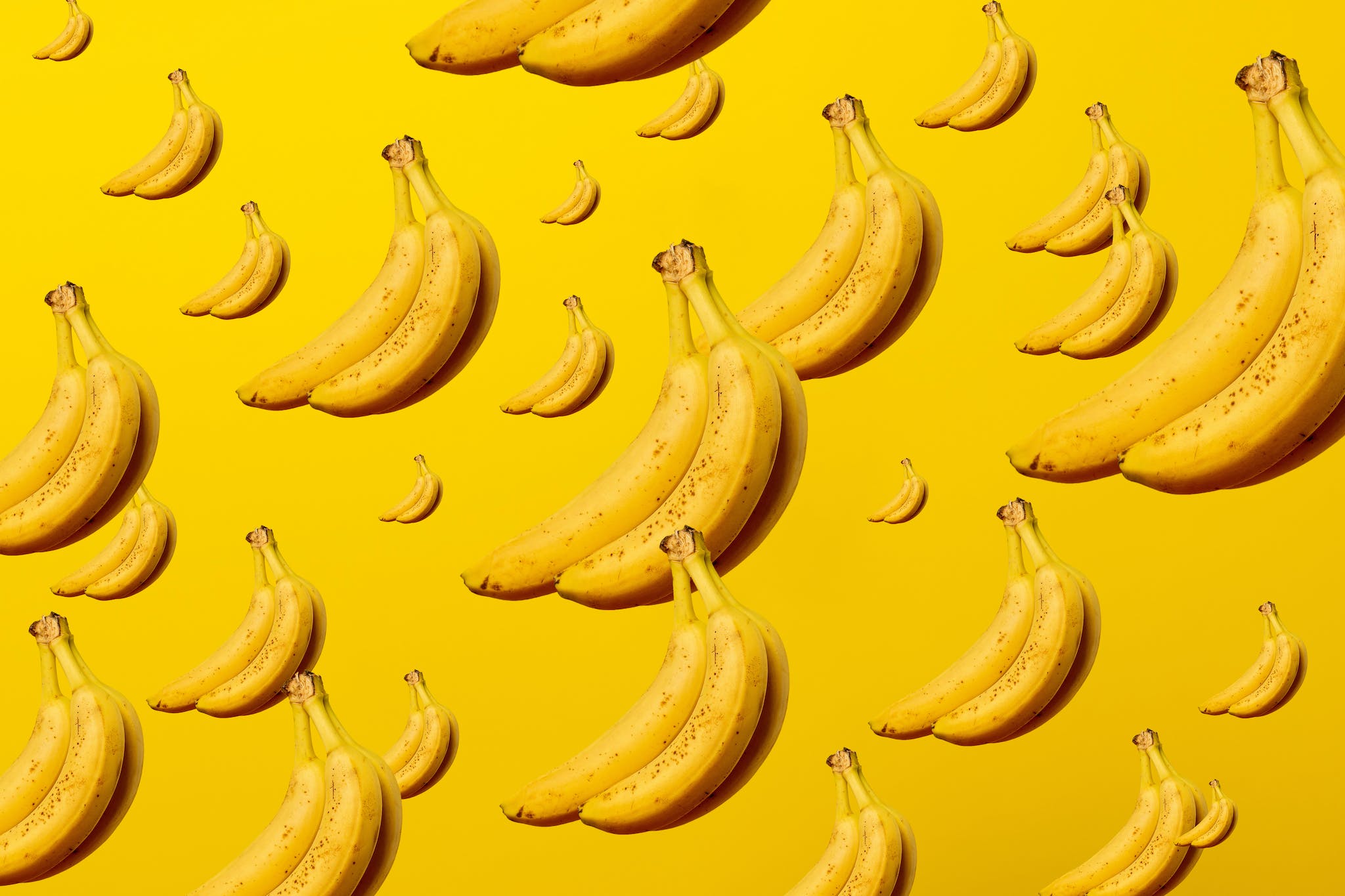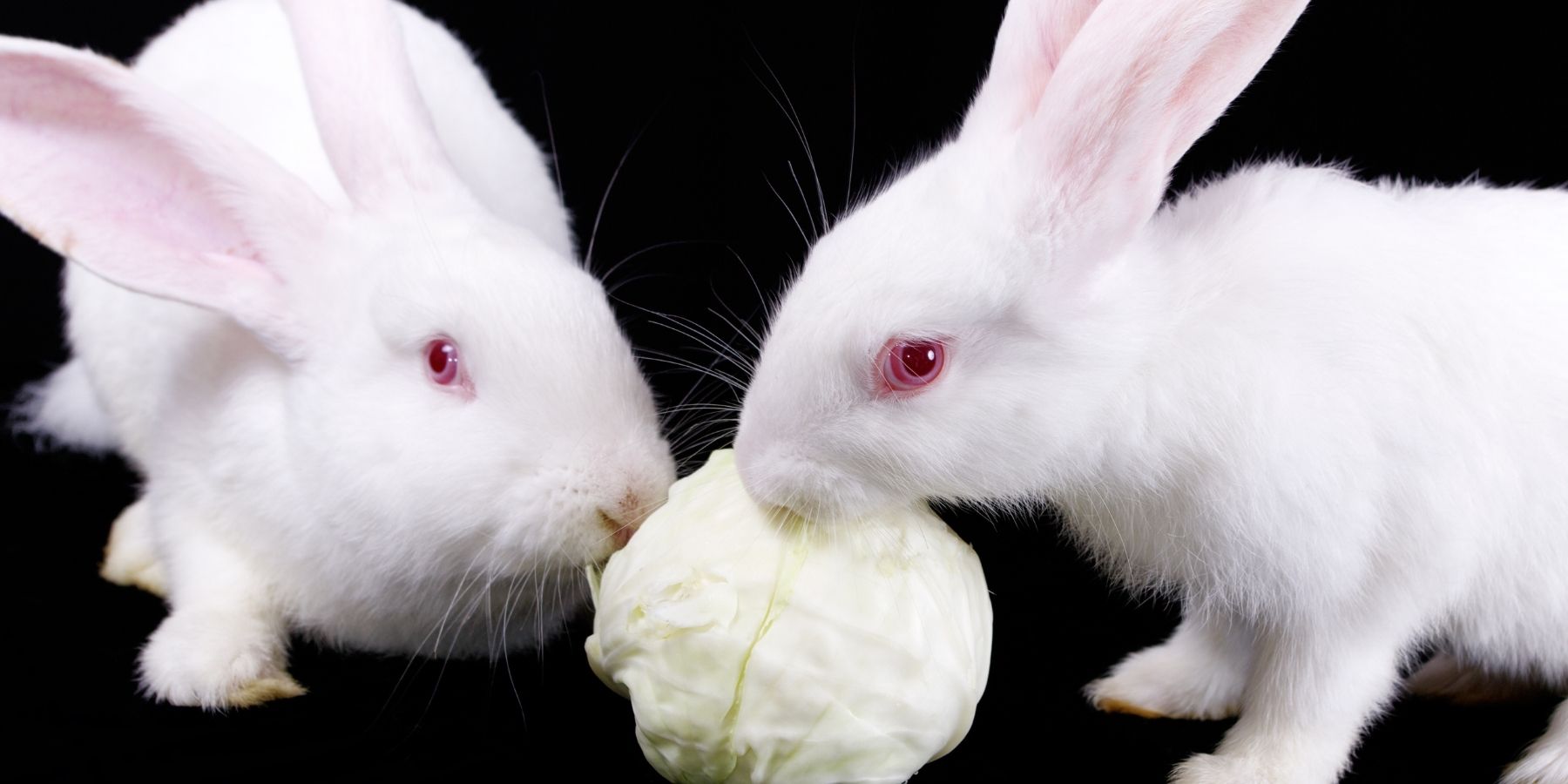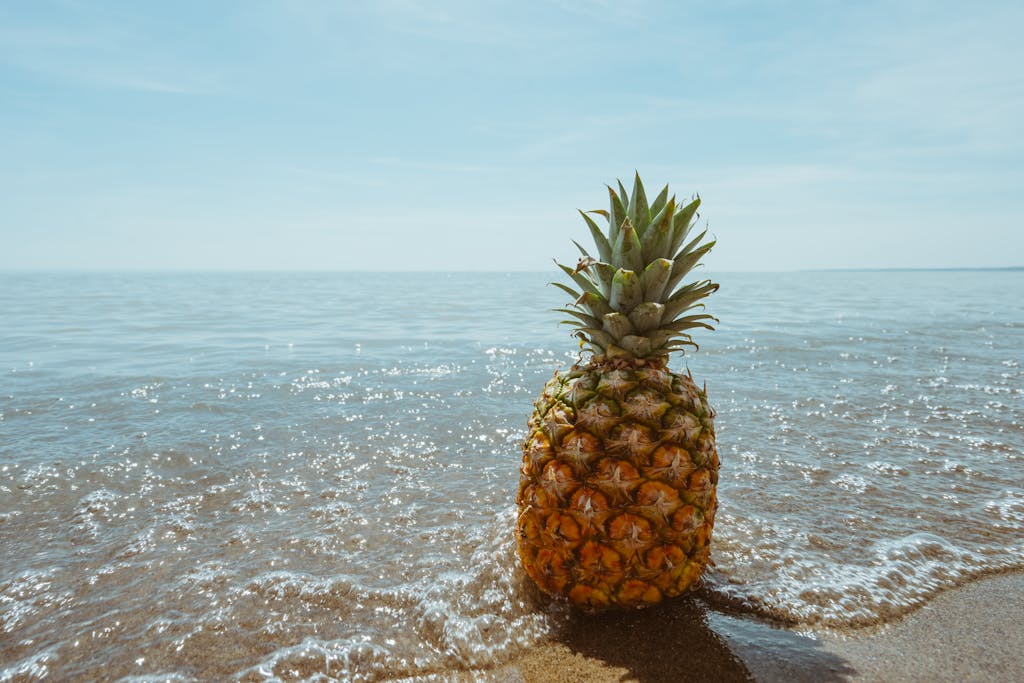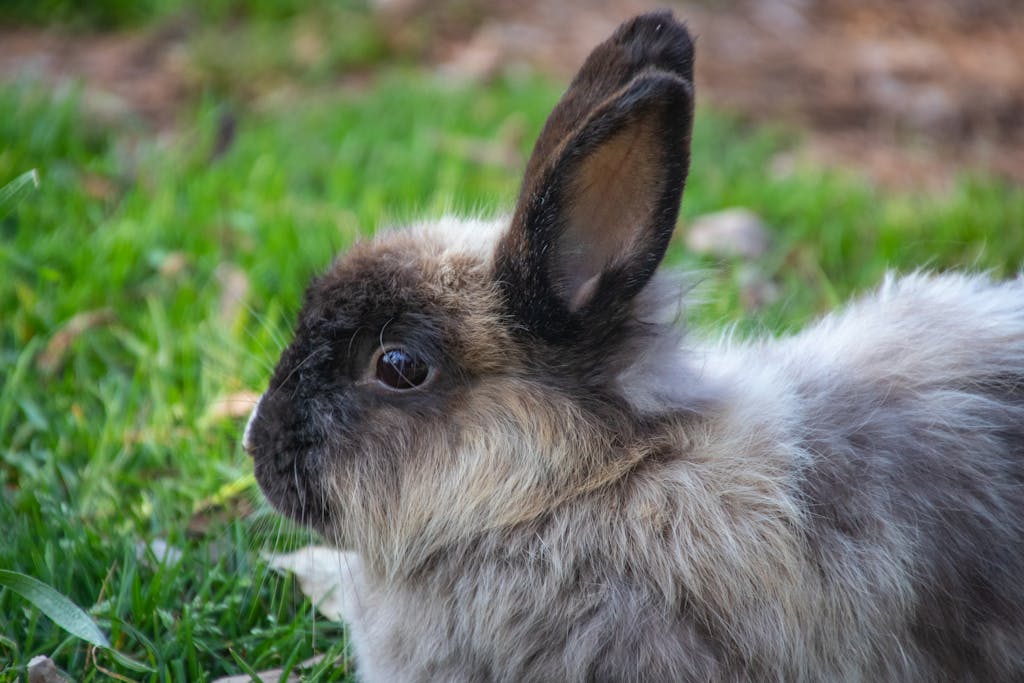Are Bananas Safe for Rabbits To Eat? A Comprehensive Guide
There are some affiliate links below, but they are all products I highly recommend. For more info, view my disclosure here.
Are bananas good for rabbits? As a rabbit owner, you may be wondering if it’s safe to share your favorite fruit with your bunny, Bananas are a popular snack for humans, but can rabbits eat them too?
We’ll explore whether bananas are a healthy addition to a rabbit’s diet and what you need to know before feeding them to your pet rabbit.
Rabbit’s diet is crucial to their health and well-being. A balanced diet for a pet rabbit should consist of hay, fresh vegetables, and a small amount of pellets. While fruit can be a tasty treat for rabbits, it should be given in moderation due to its high sugar content.
Bananas are no exception, as they are high in sugar and can cause digestive issues if given in excess. However, bananas do have some nutritional benefits for rabbits and can be a safe and healthy treat when given in moderation.
Nutritional Profile of Bananas
Bananas are a good source of essential nutrients and vitamins that can benefit your rabbit’s health. They are also high in sugar content, so feed them in moderation.
Vitamins and Minerals
Bananas are rich in Vitamin B6, which is essential for maintaining a healthy nervous system and helps in the production of red blood cells. They also contain Vitamin C, which helps in boosting the immune system and promoting healthy skin and fur.
In addition, bananas are a good source of potassium, which helps in maintaining a healthy heart and proper muscle function. They also contain magnesium, which is essential for strong bones and teeth.
Sugar Content and Caloric Considerations
Bananas are high in sugar content, which can lead to weight gain and other health problems if consumed in excess. Feed them in moderation and as a treat.
One medium-sized banana contains around 100 calories, which can add up quickly if fed in large amounts. It is recommended to limit your rabbit’s intake to one or two small pieces of banana per week.
Bananas can be a nutritious and tasty treat for your rabbit when fed in moderation. They are rich in essential nutrients and vitamins that can benefit your rabbit’s health. However, be mindful of their high sugar content and caloric considerations.
Rabbit Dietary Needs
As a rabbit owner, you should understand the dietary needs of your rabbit. Rabbits have a sensitive digestive system that requires a diet high in fiber and low in sugar. Providing your rabbit with a balanced diet can help prevent health issues and ensure a long and happy life.
Importance of Fiber
Fiber is essential for a rabbit’s digestive system. It helps keep their gut moving and prevents blockages that can lead to serious health problems. Timothy hay is an excellent source of fiber and should make up the majority of your rabbit’s diet. You can also provide your rabbit with fresh vegetables and leafy greens, such as kale and spinach, to supplement their fiber intake.
Risks of High Sugar Diets
Rabbits are prone to dental problems, and a diet high in sugar can exacerbate these issues. Avoid feeding your rabbit sugary treats, such as fruit and carrots, in excess. While these foods can be given in moderation, they should not make up a significant portion of your rabbit’s diet.
Suitable Foods for Rabbits
In addition to timothy hay, fresh vegetables and leafy greens, there are many other nutritious foods that rabbits can enjoy. Some examples include:
- Broccoli
- Cauliflower
- Cucumber
- Parsley
- Radish
- Turnip greens
Introduce new foods slowly and in small quantities to avoid upsetting your rabbit’s sensitive digestive system.
By providing your rabbit with a balanced diet that meets their nutritional needs, you can help ensure a happy and healthy life for your bunny.
Feeding Bananas to Rabbits
If you’re wondering whether or not bananas are safe for your rabbit to eat, the answer is yes! Bananas can be a tasty and nutritious treat for your bunny. Keep in mind that they should only be given in moderation and as part of a balanced diet. Here are some things to consider when feeding bananas to your rabbit:
How Much Banana Is Safe?
As a general rule, it’s recommended to only feed your rabbit small amounts of banana as an occasional treat. A good guideline is to offer 2-3 times a week, and no more than 1-2 tablespoons of banana at a time. Remember that bananas are high in sugar and too much can lead to health problems.
Potential Health Risks
Feeding your rabbit too much banana can cause digestive problems and diarrhea. Additionally, the high sugar content can lead to obesity and dental issues if given in excess. Always make sure to introduce new foods slowly and in small quantities to avoid any negative reactions.
Introducing Bananas to a Rabbit’s Diet
If you’re giving your rabbit bananas for the first time, start with very small pieces and monitor their reaction. If they seem to enjoy it and have no adverse effects, you can gradually increase the amount. Remember, bananas should never replace your rabbit’s regular diet of hay and fresh vegetables.
Bananas can be a great occasional treat for your rabbit, keep portion sizes small and monitor their reaction. As with any dietary change, it’s best to introduce new foods slowly and in small amounts to avoid any health issues.
Special Considerations for Baby Rabbits
When it comes to feeding baby rabbits, take special care to ensure that they are getting the nutrition they need to grow and develop properly. Here are some things to keep in mind when feeding baby rabbits:
1. Milk is Important
Baby rabbits rely on their mother’s milk for the first few weeks of their lives. This milk is rich in the nutrients that baby rabbits need to grow and develop properly, including protein, fat, and carbohydrates. Make sure that baby rabbits are getting enough milk during this time.
2. Introduce Solid Foods Gradually
As baby rabbits get older, they will start to eat solid foods in addition to their mother’s milk. Introduce these foods gradually to avoid upsetting their delicate digestive systems. Start with small amounts of fresh hay and gradually introduce other foods, such as fresh vegetables and fruits.
3. Avoid High-Sugar Foods
While it is important for baby rabbits to get enough carbohydrates, avoid feeding them foods that are high in sugar. Too much sugar can lead to digestive problems and other health issues. Stick to fresh vegetables and fruits that are low in sugar.
4. Provide Plenty of Water
Baby rabbits need plenty of fresh, clean water to stay hydrated and healthy. Make sure that they always have access to clean water, and consider using a water bottle to help prevent spills and contamination.
By following these tips, you can help ensure that your baby rabbits are getting the nutrition they need to grow and develop properly. Keep a close eye on their health and behavior, and consult with a veterinarian if you have any concerns.
Alternative Treats and Foods
Safe Treat Options
While bananas can be a safe and tasty treat for rabbits, remember that they should only be given in moderation. If you’re looking for alternative treats to mix things up, there are plenty of options to choose from.
Fresh fruit can be a great option, but be sure to steer clear of anything high in sugar. Some safe options include sliced apples, strawberries, and blueberries. Just be sure to remove any seeds or pits before offering them to your rabbit.
Leafy vegetables can also be a great addition to your rabbit’s diet. Romaine lettuce is a popular choice, as it’s low in calories and high in fiber. Other safe options include kale, spinach, and arugula.
Green vegetables, such as broccoli and green beans, can also be a great addition to your rabbit’s diet. Just be sure to introduce new foods slowly and in small quantities to avoid upsetting your rabbit’s digestive system.
Daily Diet Composition
While treats can be a great way to mix things up for your rabbit,remember that the majority of their diet should come from hay and pellets. Alfalfa hay is a great option for young rabbits, while timothy hay is better for adults.
Pellets should make up no more than 5% of your rabbit’s diet, and should be high in fiber and low in protein and fat. Be sure to choose a high-quality brand, and avoid any that contain added sugars or artificial colors.
By offering a variety of safe treats and sticking to a balanced diet, you can help keep your rabbit happy and healthy for years to come.
Understanding Rabbit Digestive Health
Rabbits have a unique digestive system that requires a specific diet and care to maintain their health. Understanding the rabbit digestive tract is crucial in identifying signs of digestive distress and maintaining gut health.
Signs of Digestive Distress
Rabbits are prone to digestive issues, and it’s essential to recognize the signs of digestive problems to prevent severe health issues. Loose stool, upset stomach, and GI stasis are some of the most common digestive problems that rabbits may experience. If you notice any of these signs, it’s crucial to consult a veterinarian immediately.
Maintaining Gut Health
Maintaining beneficial gut bacteria is essential for a rabbit’s digestive health. Feeding your rabbit a diet high in fiber, such as hay, is crucial in keeping their digestive tract healthy. Additionally, providing fresh vegetables and fruits in moderation can help provide essential nutrients and maintain gut health.
It’s crucial to avoid feeding your rabbit foods that may cause adverse reactions or stomach problems, such as sugary treats or processed foods. A balanced diet and proper care can help prevent digestive issues and maintain your rabbit’s overall health.
Understanding the rabbit digestive tract and maintaining gut health is crucial in preventing digestive issues. By providing a balanced diet and proper care, you can help ensure your rabbit’s digestive system stays healthy and functioning correctly.
Banana-Related Questions from Rabbit Owners
As a rabbit owner, you may be wondering if bananas are a good addition to your rabbit’s diet. Here are some common questions related to feeding bananas to rabbits:
Can Rabbits Eat Banana Peels?
While rabbits can technically eat banana peels, it is not recommended. Banana peels are tough and difficult to digest, which can lead to digestive issues for your rabbit. It is best to stick to feeding your rabbit the banana flesh and discarding the peel.
Are Dried Bananas Okay?
Dried bananas can be a tasty treat for your rabbit, keep in mind that they are high in sugar. Too much sugar in a rabbit’s diet can lead to health issues such as obesity and dental problems. It is recommended to only feed dried bananas to your rabbit in moderation.
Organic vs. Conventional Bananas
Organic bananas are grown without the use of synthetic pesticides and fertilizers, making them a potentially healthier option for both you and your rabbit. However, note that organic bananas may not necessarily be lower in sugar than conventional bananas. Additionally, the way the bananas are grown and harvested may have an impact on their nutritional content.
In summary, bananas can be a tasty and nutritious treat for your rabbit when fed in moderation. Avoid feeding your rabbit banana peels and to be mindful of the sugar content in dried bananas. When choosing between organic and conventional bananas, consider the potential benefits of organic farming practices but also keep in mind that the nutritional content may vary.
While bananas can be a tasty treat, consider their health benefits and concerns before adding them to their diet. Bananas contain free sugars, which can be harmful to rabbits if consumed in large amounts. Overweight rabbits or those with a sweet tooth should avoid bananas altogether.
However, bananas do offer some health benefits, including a boost to the immune system and a source of fiber. If you do decide to give your rabbit a banana, make sure to only offer it as a special treat in small quantities.
According to Purdue University of Veterinary Medicine, rabbits should have a diet that consists mostly of hay, fresh vegetables, and a small amount of pellets. While bananas can be a good thing in moderation, they should not make up a significant portion of your rabbit’s diet.
In summary, while bananas may have a sweet taste that rabbits enjoy, consider their health before offering them as a special treat. By keeping their diet balanced and limiting the amount of free sugars they consume, you can help ensure that your bunny stays healthy and happy.







